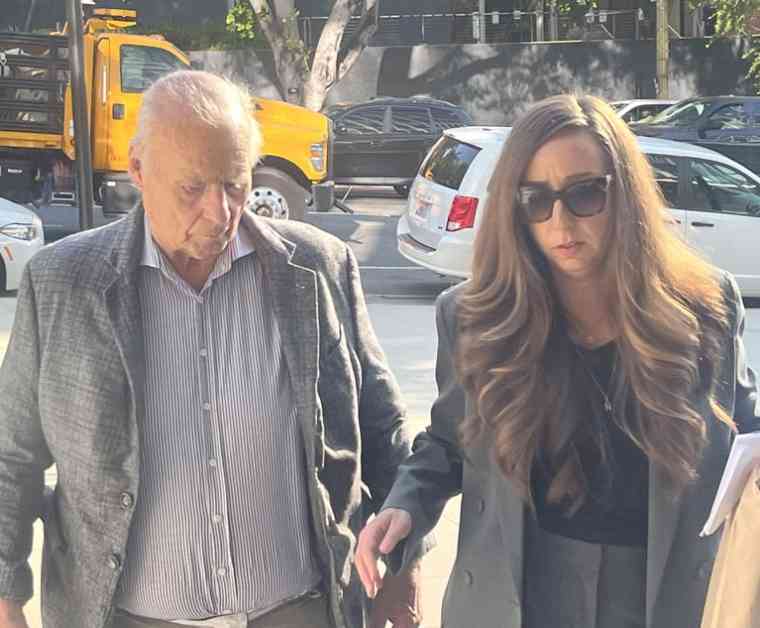Tom Girardi, the well-known attorney, arrived at the U.S. District Court for the Central District of California in downtown Los Angeles, on a day filled with uncertainty. His lawyers were seeking a new trial, claiming that Girardi was not mentally fit to comprehend the proceedings of his recent criminal trial.
The jury had convicted Girardi of four counts of wire fraud after a lengthy three-week trial on August 27. However, his legal team argued that his cognitive abilities were diminished, casting doubt on the validity of the verdict. This request for a new trial came after the former Girardi Keese CFO, Christopher Kamon, pleaded guilty to two counts of wire fraud and agreed to pay $3.1 million to the victims involved.
Adding to the complexity of the situation, a caretaker responsible for driving Girardi to court each day submitted a declaration stating, “He does not appear to have any memory of the jury’s verdict or the trial at all.” This statement shed light on Girardi’s mental state during the trial, raising concerns about his ability to actively participate in his defense.
The unfolding events surrounding Tom Girardi’s case not only highlight the legal intricacies of his conviction but also bring into question the importance of mental competence in criminal proceedings. The notion that a defendant may not fully grasp the gravity of their trial due to memory concerns opens up a broader conversation about the intersection of mental health and the criminal justice system.
As Girardi’s legal team fights for a new trial based on his alleged lack of understanding, it underscores the need for thorough evaluations of defendants’ mental capacities before and during legal proceedings. The implications of this case could have far-reaching effects on future trials involving individuals with cognitive impairments, prompting a closer examination of how the legal system accommodates such situations.
The request for a new trial amid memory concerns not only adds a layer of complexity to Tom Girardi’s case but also serves as a reminder of the delicate balance between upholding justice and ensuring the rights of individuals with mental health challenges. As the legal battle continues to unfold, the outcome of this appeal could set a precedent for how the court system addresses similar issues in the future, emphasizing the importance of a fair and equitable judicial process for all individuals involved.















